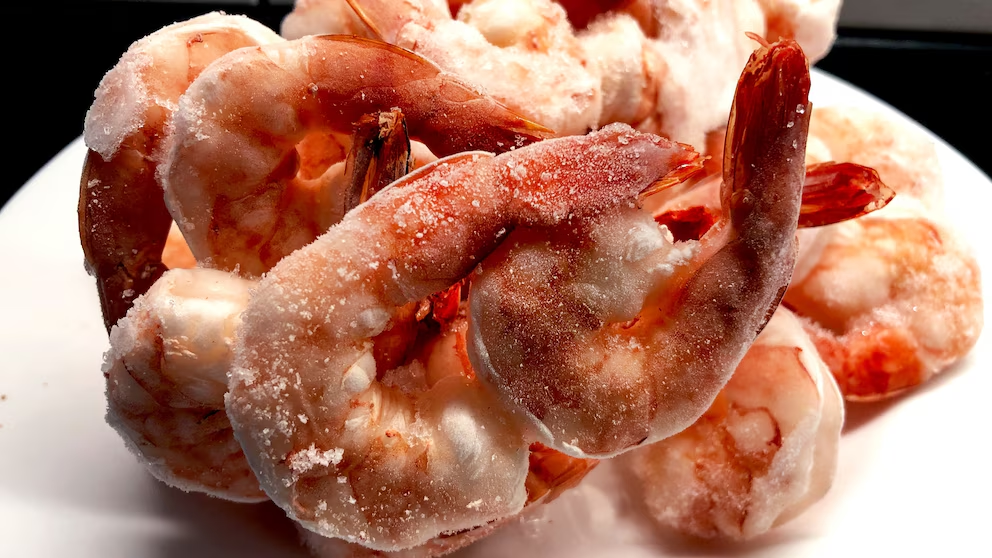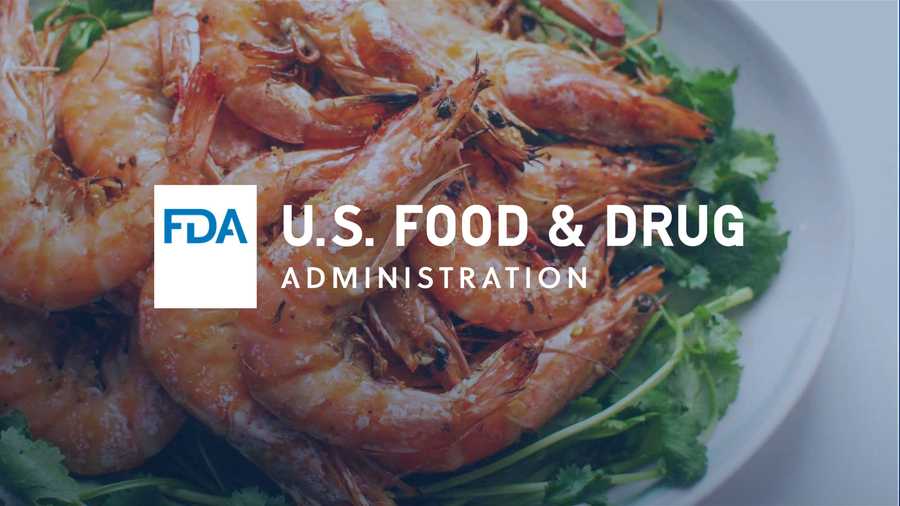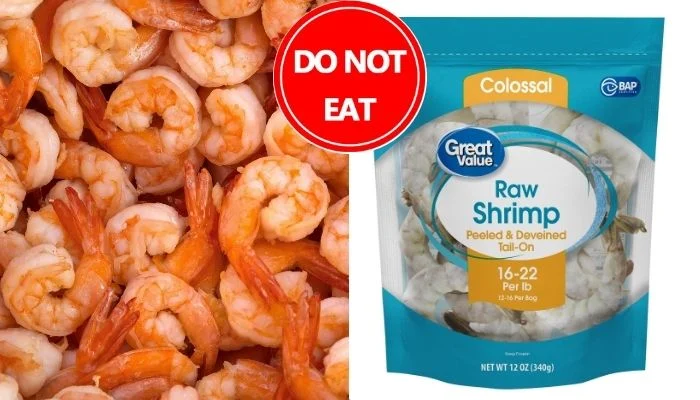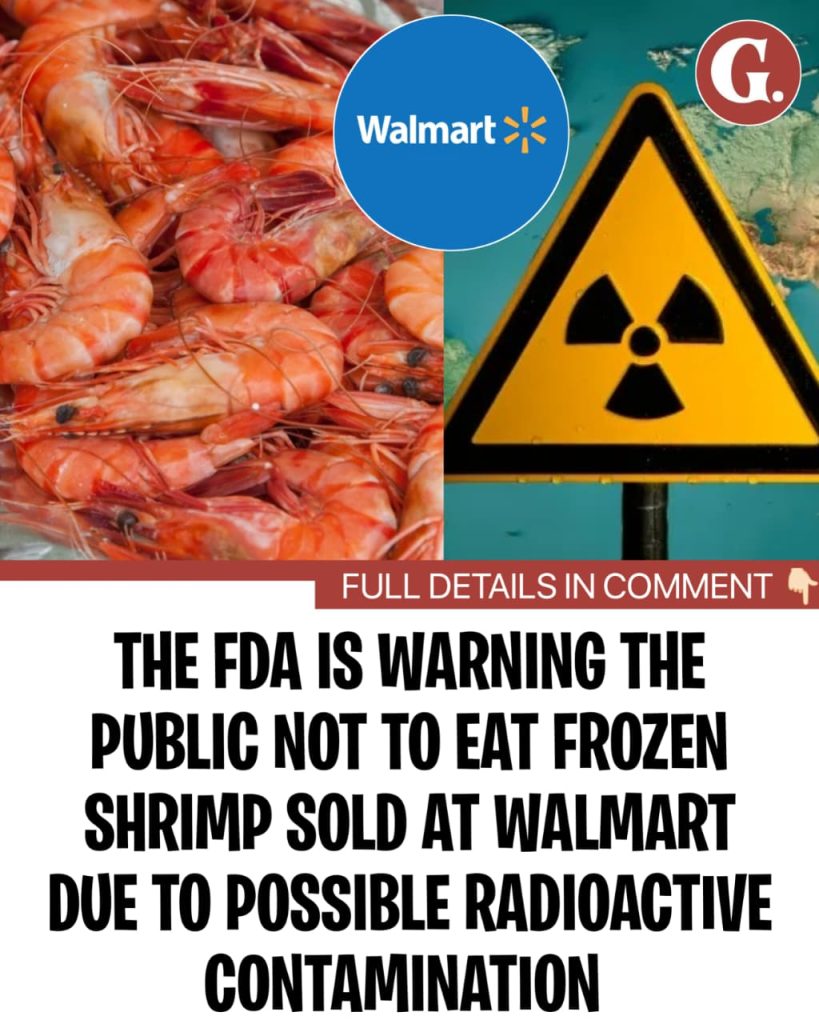FDA Sounds Alarm Over Walmart’s Great Value Shrimp May Contain Nuclear Fallout—Here’s How to Stay Safe
I never thought I’d write something like this about shrimp, but here we are. Picture loading up your cart for a simple dinner—stuff that’s supposed to be safe and familiar—and suddenly the government warns that your food may be radioactive. That’s exactly what’s happening with Walmart’s Great Value frozen raw shrimp.

The U.S. Food and Drug Administration (FDA) just dropped a public health advisory that caught me off-guard. Officials found traces of Cesium-137 (Cs-137)—a radioactive isotope produced during nuclear activities—in shipping containers and a sample of breaded shrimp imported from Indonesia. Even though the levels were reportedly below the danger threshold, the mere idea that radioactive material may be in our food sent a chill down my spine. They urged everyone to stop eating, selling, or serving any bags matching three specific lot codes with a March 2027 best-by date. The affected stores? A laundry list of 13 states from Florida to Pennsylvania.
Walmart moved quickly—blocking sales and recalling the shrimp. It feels strange to see that sense of urgency over something you would normally toss on the grill without a second thought. I can’t help but wonder about the people who already used these shrimp in meals, blissfully unaware. Experts say the immediate risk is low, and consuming it one time won’t make you glow or fall ill. But the bigger concern is prolonged, low-level exposure that could damage DNA and increase cancer risk over time.

Here’s where it gets real personal. Food has always been about comfort, routines, and the little moments in our day. Shrimp pasta on Friday nights, kids dipping them in sauce, maybe an anniversary meal—those shared moments suddenly feel fragile when there’s a fear as invisible as radiation. We don’t see it, we don’t taste it, it doesn’t smell—but it can still feel like a shadow over what used to be ordinary.
So what exactly is going on? The shrimp came from a supplier named PT. Bahari Makmur Sejati (BMS Foods). The FDA detected Cs-137 in shipping containers heading into U.S. ports like Los Angeles and Miami, though not all shipments triggered alarms. One sample tested positive, and although it never officially made its way to consumers, the FDA realized more shipments could carry the same risk. That led them to act fast, recall the shrimp, deny newer shipments, and even issue an import alert to block further items from that supplier. No one wants to be the person who overlooked the small print and ended up on the wrong side of a nuclear-level safety problem.

Honestly, now I’m paranoid scanning pantries, checking labels, and reminding myself this isn’t a zombie movie, it’s industry caution—and likely overkill. Doctors say one or two servings won’t land you in the hospital. But radiation isn’t like a hot stove burn—it’s silent and invisible, a slow problem that creeps up. Just thinking about it made me pause before reheating dinner this morning.
This is also a moment that made me think about how fragile our food system is. We trust these labels, brands, and systems to shield us from strange threats, but a slip at a port or a single bad batch can undo that trust overnight. It puts the responsibility squarely on agencies like the FDA and Customs to catch things before they land in our shopping bags. But with millions of products shipped every day, mistakes can happen—and they can cascade fast.

What should you do if you have this shrimp in your freezer? Throw it away, the FDA says. Don’t serve it. If you want peace of mind, go to Walmart and ask for a refund. Safety, they say, trumps the hassle of returning a bag. Personally, knowing a potential hazard lurks beneath a seemingly harmless dinner is enough for me to just toss it—food isn’t worth the mental weight when the stakes feel this heavy.
There’s something deeply unsettling about this story, but it’s also a reminder about how easily our daily lives can be disrupted by forces beyond our control—nuclear fallout, radiation, government alerts. This isn’t a thriller—I hope no one ends up hurt—but it’s a jolt to remember that safety isn’t perfect, and vigilance sometimes needs to come home with your groceries.


